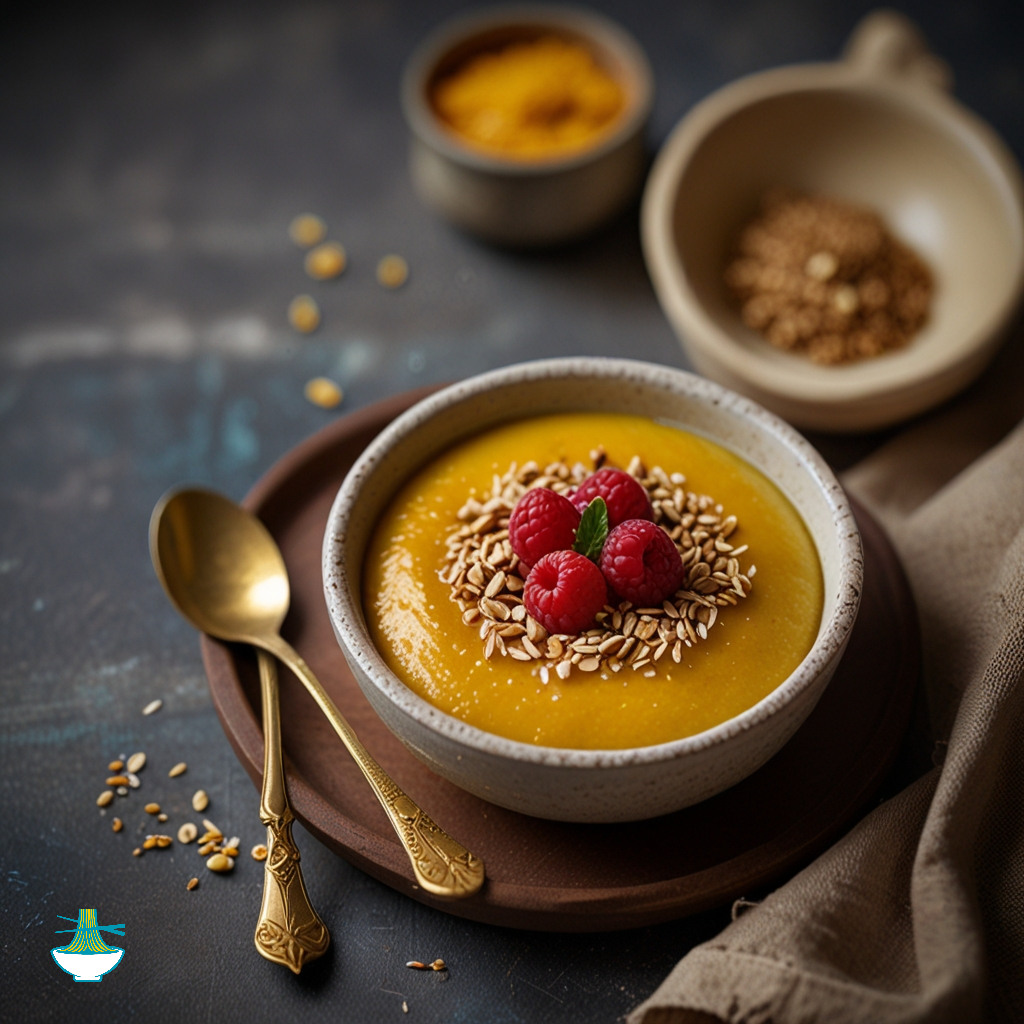Sumalak, a cherished dish in Central Asian culture, holds deep-rooted significance as a symbol of renewal and abundance during the spring festival of Navruz. This sweet pudding-like delicacy is crafted from sprouted wheat, flour, and sugar, simmered over a slow flame to perfection. Its history intertwines with folklore and tradition, dating back centuries to ancient rituals celebrating the arrival of spring and the blessings of a bountiful harvest. Today, Sumalak continues to unite communities, bridging generations with its rich flavors and cultural heritage, making it a beloved centerpiece of Navruz festivities across the region.
Ingredients:
- Sprouted wheat
- Flour
- Sugar
Method:
1. Rinse the sprouted wheat thoroughly and drain excess water.
2. Place the sprouted wheat in a large pot and cover with water. Bring to a boil, then reduce the heat and simmer until the wheat is tender.
3. Gradually add flour to the pot, stirring constantly to prevent lumps from forming.
4. Continue cooking over low heat, stirring frequently, until the mixture thickens.
5. Slowly add sugar to taste, stirring until completely dissolved.
6. Simmer the mixture for an additional 1-2 hours, stirring occasionally, until it reaches a pudding-like consistency.
7. Remove from heat and let cool slightly before serving.
8. Optionally, garnish with nuts or dried fruits before serving.
This uncomplicated recipe captures the essence of Sumalak, offering a straightforward approach to recreating this cherished dish at home.
Nutrition Value:
1. Sprouted wheat:
- Calories: Approximately 120 calories per 1/4 cup (unsprouted).
- Carbohydrates: Rich source of complex carbohydrates, providing sustained energy.
- Protein: Contains some protein, aiding in muscle repair and growth.
- Fat: Low in fat.
- Sodium: Low in sodium.
- Cholesterol: Cholesterol-free.
- Vitamins: Good source of vitamins B and E, promoting overall health and vitality.
- Minerals: Contains minerals such as iron, magnesium, and zinc, supporting various bodily functions.
- Nutritional benefits: Sprouted wheat is easier to digest and may have higher levels of certain nutrients compared to unsprouted wheat. It's also believed to have enhanced bioavailability of nutrients, potentially improving nutrient absorption.
2. Flour (usually wheat flour):
- Calories: Approximately 100-110 calories per 1/4 cup (depending on type).
- Carbohydrates: Mainly composed of carbohydrates, providing energy.
- Protein: Contains some protein, aiding in building and repairing tissues.
- Fat: Low in fat.
- Sodium: Low in sodium.
- Cholesterol: Cholesterol-free.
- Vitamins: Some varieties are fortified with vitamins like B vitamins and iron.
- Minerals: Contains minerals like iron and magnesium, depending on the type of flour.
- Nutritional benefits: Flour serves as a versatile ingredient in cooking and baking. While not particularly rich in nutrients, it provides essential carbohydrates for energy.
3. Sugar:
- Calories: Approximately 50 calories per tablespoon (white granulated sugar).
- Carbohydrates: Composed entirely of carbohydrates, providing a quick source of energy.
- Protein: Negligible protein content.
- Fat: Fat-free.
- Sodium: Sodium-free.
- Cholesterol: Cholesterol-free.
- Vitamins: Lacks significant vitamin content.
- Minerals: Lacks significant mineral content.
- Nutritional benefits: Sugar adds sweetness to dishes but offers little nutritional value beyond calories. It provides a quick energy boost but should be consumed in moderation due to its potential negative health effects when consumed in excess.


Comments